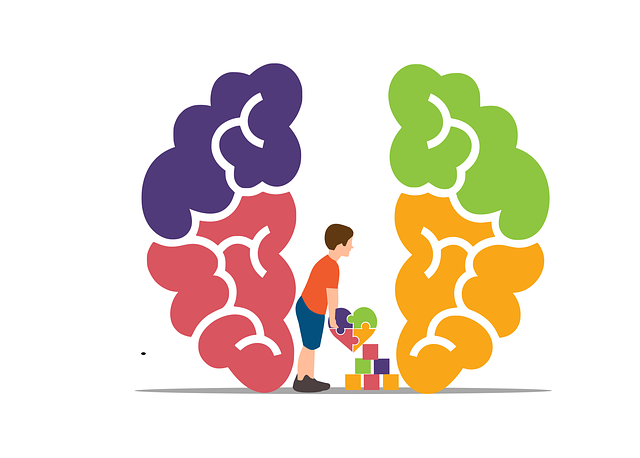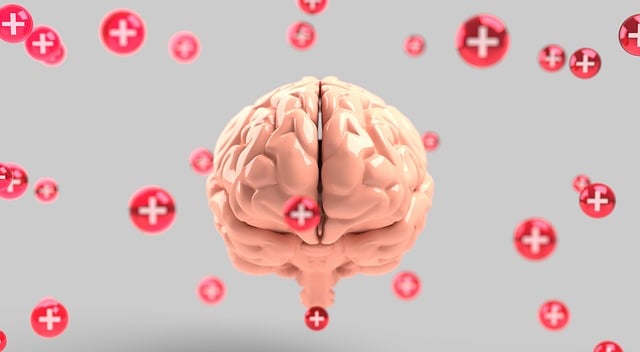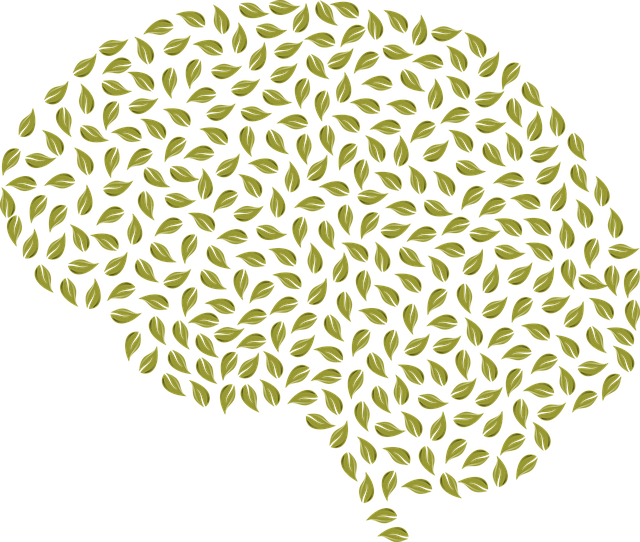Highlands Ranch Chronic Illness Therapy emphasizes emotion regulation as a powerful tool for managing mental wellness. By identifying emotional triggers, individuals gain awareness to proactively manage their emotional responses, reducing anxiety and burnout. Techniques like mindfulness meditation and journaling develop emotional intelligence, providing coping strategies tailored to individual needs. Incorporating cognitive strategies and present-moment awareness reduces stress and improves mindset, enhancing overall well-being. Through trauma support and conflict resolution, clients build resilience, empowering them to manage symptoms effectively and fostering personal growth even amidst adversity.
Emotion regulation techniques are essential tools for managing stress, anxiety, and other mental health challenges, especially in areas like Highlands Ranch Chronic Illness Therapy. This comprehensive guide explores the importance of emotion regulation and offers practical strategies to help individuals understand and manage their emotions effectively. From identifying triggers to incorporating mindfulness and cognitive strategies into daily life, these techniques foster resilience and promote better mental health outcomes.
- Understanding Emotion Regulation and its Importance
- Identifying Triggers: Unraveling the Roots of Emotional Reactivity
- Techniques to Manage and Modulate Emotions
- Incorporating Mindfulness and Cognitive Strategies in Daily Life
- Building Resilience: Long-term Skill Development for Better Mental Health
Understanding Emotion Regulation and its Importance

Emotion regulation is a crucial skill that enables individuals to understand and manage their feelings effectively. It involves recognizing and accepting emotions as they arise, while also learning to respond to them in a healthy and adaptive manner. This process is especially significant for those navigating Highlands Ranch Chronic Illness Therapy, as it can help mitigate the emotional toll associated with chronic health conditions. By mastering these techniques, individuals can prevent burnout, reduce anxiety, and enhance their overall well-being.
Incorporating emotion regulation strategies into daily life empowers people to cope with challenging situations, including trauma. It’s a powerful tool for Trauma Support Services, offering a means to heal and rebuild resilience. Understanding the importance of emotional control is the first step towards personal growth and improved mental health, ultimately contributing to a more balanced and fulfilling life, even in the face of adversity.
Identifying Triggers: Unraveling the Roots of Emotional Reactivity

In Highlands Ranch Chronic Illness Therapy, one of the foundational steps in emotion regulation techniques teaching is identifying triggers that ignite emotional reactivity. This process involves delving into one’s past experiences and current stressors to uncover the root causes behind intense or persistent emotions. By understanding what sets off certain emotional responses, individuals can begin to navigate their feelings more effectively. For instance, a person struggling with mental wellness might realize that specific environments, conversations, or even memories trigger anxiety or depression. This awareness is crucial in developing strategies to manage and regulate these emotions.
Mental illness stigma reduction efforts often emphasize the importance of early intervention, which includes recognizing these triggers. By identifying them, individuals can take proactive steps to prevent burnout, a common issue among those managing chronic illnesses. Through this process, one learns to anticipate emotional responses and implement coping mechanisms before reactions become overwhelming. This proactivity is key in fostering mental wellness and maintaining a healthy balance despite life’s challenges.
Techniques to Manage and Modulate Emotions

Managing and modulating emotions is a crucial aspect of maintaining mental wellness, especially for individuals navigating Highlands Ranch Chronic Illness Therapy. Techniques such as mindfulness meditation teach individuals to be present with their emotions without judgment, fostering a sense of calm and control. By focusing on the breath or engaging in body scans, people can learn to observe their feelings without getting swept away by them.
Emotional Regulation goes beyond mere observation; it also involves developing coping skills through activities like journaling. Maintaining a Mental Wellness Journaling Exercise Guidance can help individuals track their emotions, identify triggers, and reflect on coping strategies that work best for them. This process not only enhances emotional intelligence but also provides a safe space to express and process feelings, ultimately contributing to overall well-being.
Incorporating Mindfulness and Cognitive Strategies in Daily Life

Incorporating mindfulness and cognitive strategies into daily life can significantly enhance emotional intelligence and stress reduction methods for individuals managing chronic illness in Highlands Ranch. Mindfulness practices, such as meditation and deep breathing exercises, teach individuals to be present in the moment, thereby reducing reactivity to strong emotions. By fostering a non-judgmental awareness of thoughts and feelings, these techniques help in navigating the challenges that often arise from living with chronic conditions.
Cognitive strategies, on the other hand, equip people with tools to challenge negative thought patterns and replace them with more balanced perspectives. This involves recognizing cognitive distortions, restructuring maladaptive beliefs, and adopting positive self-talk. When combined with mindfulness, these strategies enable individuals to effectively manage stress, resolve conflicts that may arise within their support systems, and cultivate a greater sense of emotional well-being, ultimately improving their overall quality of life in Highlands Ranch chronic illness therapy settings.
Building Resilience: Long-term Skill Development for Better Mental Health

In the context of Highlands Ranch Chronic Illness Therapy, building resilience through emotion regulation techniques is a powerful approach to enhancing mental health and well-being. These skills are instrumental in helping individuals navigate life’s challenges and stressful situations, fostering a sense of empowerment. By learning effective emotional healing processes, clients can develop long-term coping mechanisms that prevent the exacerbation of symptoms and promote overall stability.
The integration of trauma support services and conflict resolution techniques within emotion regulation training allows for a comprehensive understanding of one’s emotional responses. This holistic approach ensures that individuals not only manage their emotions but also process underlying traumatic experiences, thereby achieving lasting personal growth. Through dedicated practice, these skills become integral parts of daily routines, enabling people to maintain mental resilience even in the face of adversity.
Emotion regulation techniques offer a powerful tool for navigating life’s challenges, especially for those managing chronic illnesses in Highlands Ranch. By understanding and mastering these skills, individuals can enhance their mental resilience and overall well-being. The strategies outlined in this article provide a comprehensive framework, from identifying emotional triggers to incorporating mindfulness and building long-term emotional resilience. Armed with these techniques, folks in Highlands Ranch Chronic Illness Therapy can effectively manage their emotions, leading to improved coping mechanisms and a higher quality of life.














